Every (explosive-sniffing) dog has their (graduation) day
In the back of a gymnasium, Maggie marked her success in quickly identifying one suitcase that had traces of gunpowder from a pile of luggage with a celebratory handful of kibble.
The Bureau of Alcohol, Tobacco and Firearms’ National Canine Academy, tucked away in Virginia’s Blue Ridge Mountains, puts explosive-sniffing dogs-to-be through a grueling five-month boot camp where they learn to detect thousands of different explosives.
Those who successfully graduate the training program go on to patrol some of the country’s most high-profile events like the Super Bowl, the presidential inauguration and the upcoming Republican and Democratic National conventions.
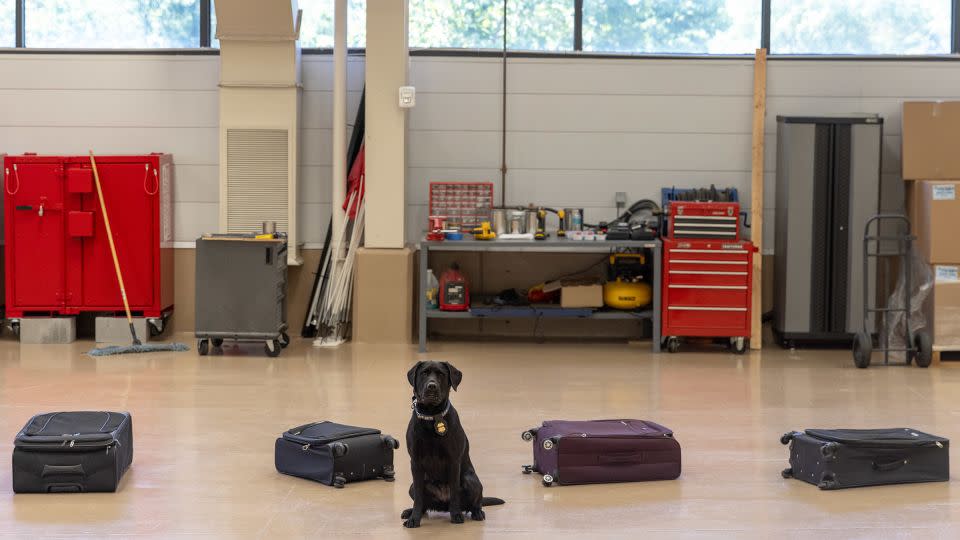

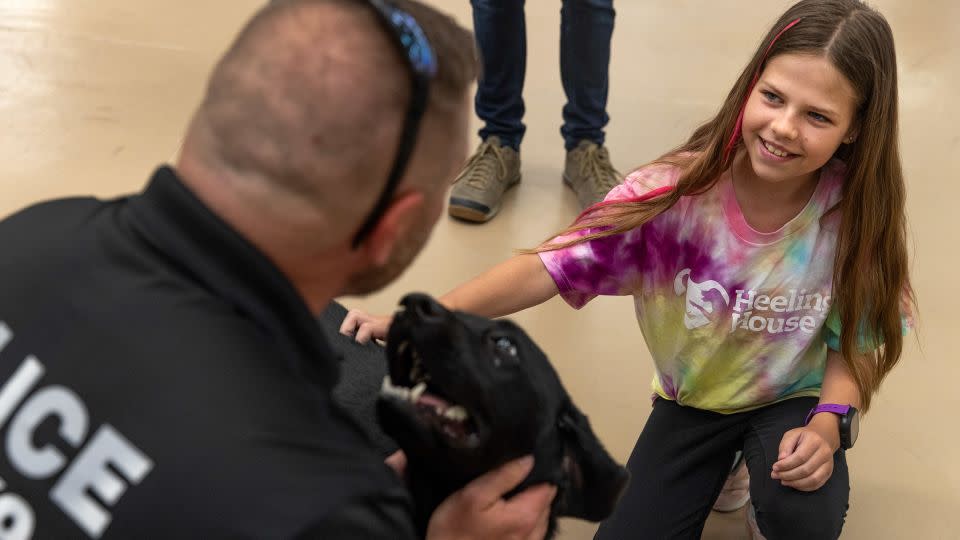
In a brief ceremony Friday for this years’ graduates at the sprawling compound, seven labrador retrievers and their human handlers stood before family and friends to be presented with their hard-earned law enforcement badges.
The graduates — siblings Calvin, Oakley and Murphy, who are going to Dallas, Atlanta and Phoenix respectively; Maggie and her brother Zeus, who are going to Richmond, Virginia, and New Orleans; Tara, the barker of the group, moving to Oklahoma City; and Derby, who is moving to Huntsville and will work at all of the University of Alabama football games — will join the approximately 45 ATF explosives-sniffing dogs who work around the country.
One additional yellow lab, Nellie, was at the ceremony but didn’t quite get her off-leash commands down in time to walk at graduation, a trainer at the facility told CNN. Nellie is moving to Wisconsin and will keep working toward her badge.
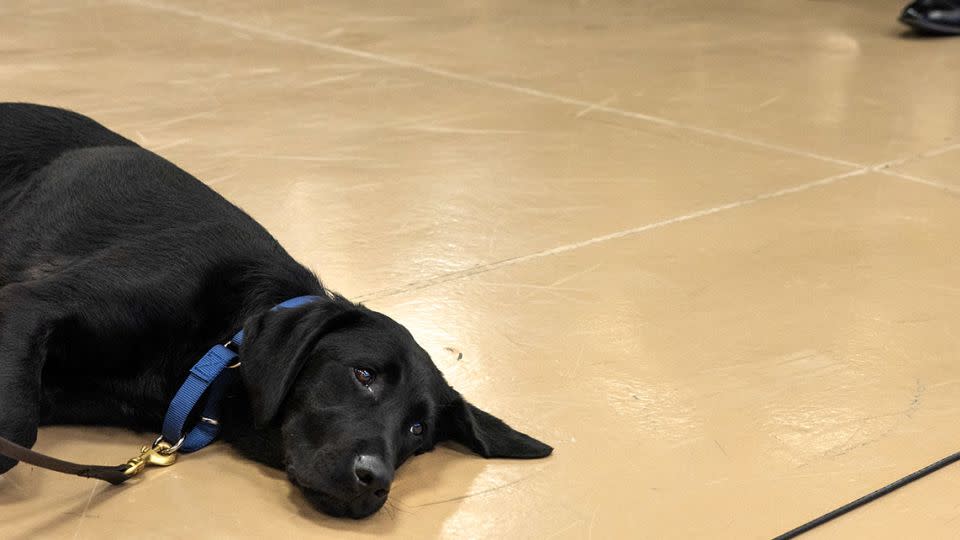
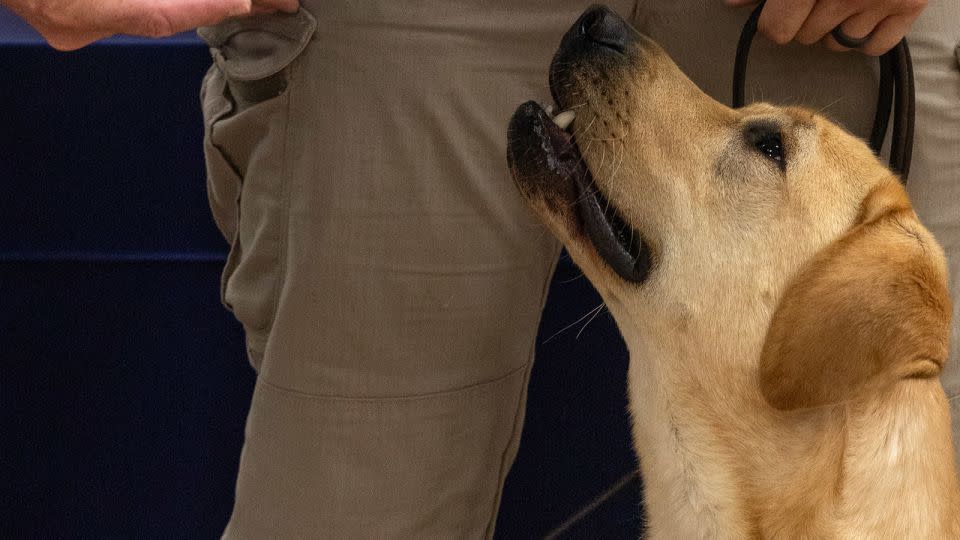
Each canine is hand-selected from programs like Puppies Behind Bars to join the ATF program, lead instructor Shawn Crawford told CNN. The first, and perhaps most important, test the dogs face is whether they can recover when a trainer drops a metal bucket behind them.
“If they are out on a bomb threat and a car backfires or something and the dog shuts down, that agent and that dog are now useless looking for the explosive device,” Crawford said.
The dogs then go through a rigorous process of learning to sniff out explosives and ignitable liquids. They work both on leash, like other law enforcement dogs, or off-leash through hand signals allowing handlers to stay a safe distance away in highly dangerous scenarios like school shootings.
“The off-leash portion of their training is kind of like a fire extinguisher, they may not ever use it in their career,” Crawford said, adding that the dogs must be “fearless.”
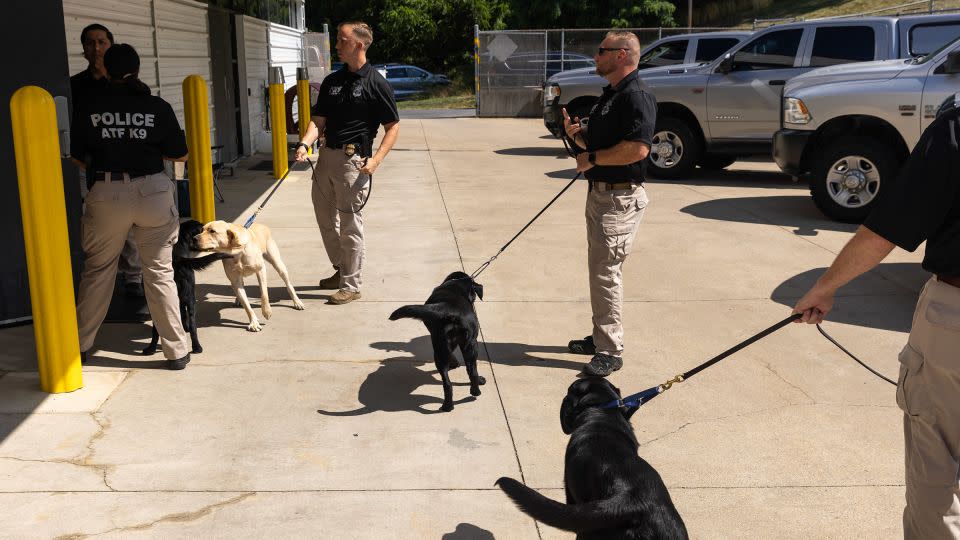
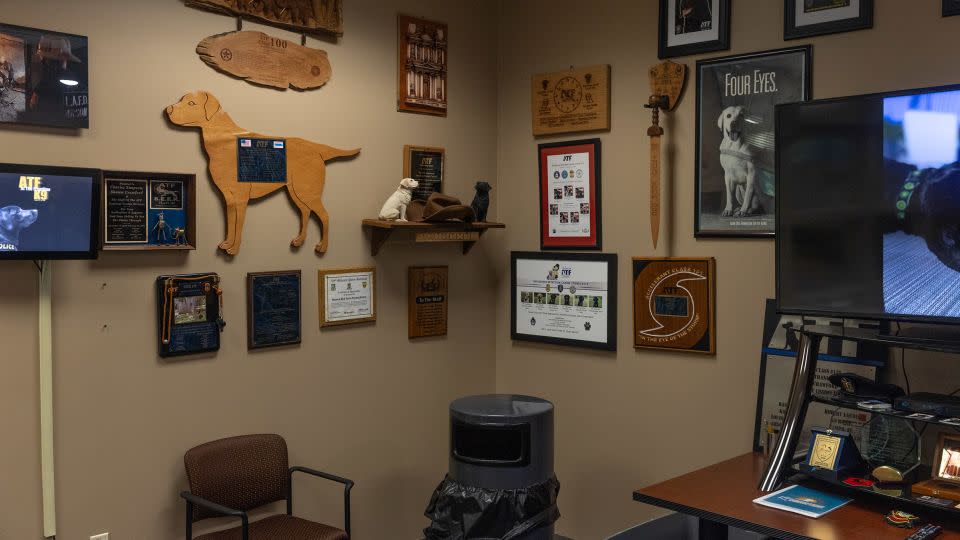
The process to become a handler is hardly less grueling. David Wiley, Derby’s new handler, said that you must have been a special agent with the ATF for at least five years before vying for a spot through a rigorous and selective application process. Those selected go through an intensive training process themselves before being paired with a dog.
Friday’s graduation is bittersweet for Wiley — his previous canine partner, Ranger, is transitioning into retirement as his family pet. Ranger is happily adjusting to life as a civilian, Wiley said, and has learned how to eat from a bowl (working dogs only eat from their handlers’ hands).
Crawford, who has run the ATF training program for nearly three decades, also has his own dog waiting for him at home, a Pomeranian who, he said, “knows nothing.”
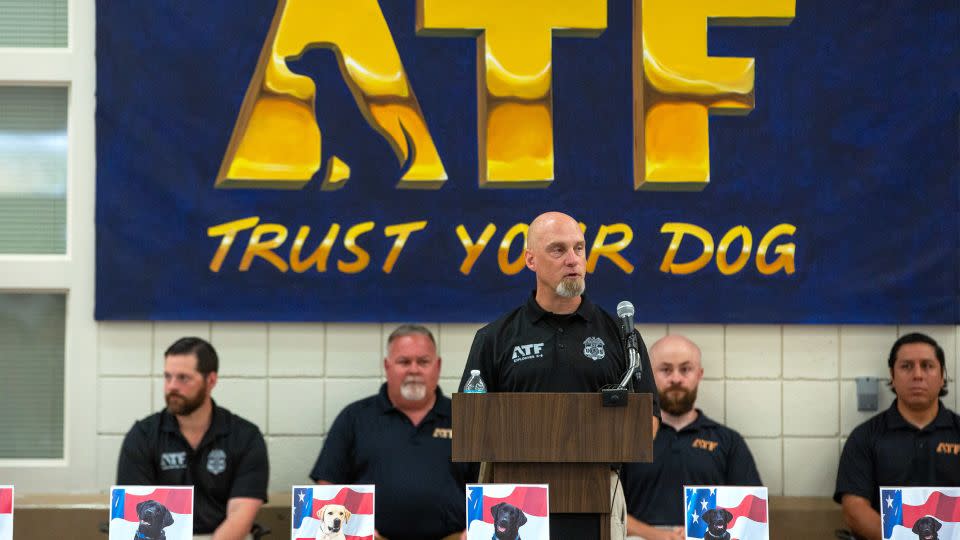
For more CNN news and newsletters create an account at CNN.com


